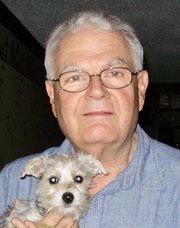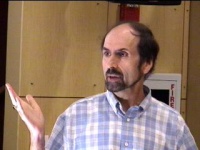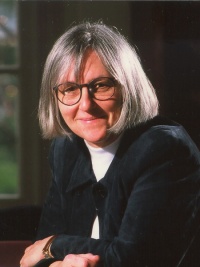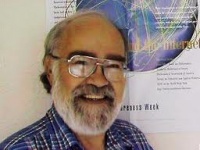Uniqueness Debate
The uniqueness debate considers whether information ethics constitutes a new branch of applied ethics or simply worsens already existing ethical problems. The term 'uniqueness' refers to the new ethical issues encountered within the field of information technology. The concept is also referred to as the CEIU thesis, which stands for computer ethics is unique. Since the rise of computing, computer use has led to improper and immoral activity and philosophers argue whether these abuses require a new field of ethics.
Contents
History
Uniqueness debate discussions began when Walter Maner Ph.D, proposed in his class at Bowling Green State University that computer ethics generates new and unique problems. He developed the first university course focused on computer ethics. A colleague in the philosophy department, Deborah Johnson became interested in his proposed new field of ethics. After discussions with Maner, Johnson doubted the 'newness' of ethical isues invloving computer use, and thus became the first traditionalist. Conversely, Maner maintained support for CEIU. Dialogue between Maner and Johnson led to publications that spurred conversations among scholars and philosophers, known as the uniqueness debate. [1]
Argument
- "See Also: Uniqueness of Information Ethics"
Case studies have shown that computer use has led to improper and immoral activity. These abuses include malware , cyberbullying, cyberstalking, and computer crime (See Also: Digital Piracy and Virtual Child Pornography). Uniqueness advocates suggest that the scope and scale by which moral injustices occur through the use of computing devices establish computer ethics as completely new. Moreover, uniqueness advocates suggest that computers have changed our expectations about a cluster of ethical and social issues. On the other hand, opponents of the uniqueness of computer ethics, commonly called traditionalists, take the view that the use of Internet technology simply generates new tools and techniques that affect moral decision making.[2]
The Amy Boyer Case is considered to be a case study which fosters differences between traditionalists and uniqueness advocates. Traditionalist consider cyberstalking and offline stalking to be identical in their malicious intent. Moreover, laws exist that protect victims from both online and offline stalking. [3] Uniqueness advocate remark that a cyberstalker has indefinitely more tools by which to stalk a victim, including search engines, cookie trackers, and social networks. Additionally, a cyberstalker incurs the ability to remain anonymous. Due to the unusual circumstances of online stalking, uniqueness advocates claim that cyberstalking is not the same as offline stalking. [2]
Supporters
Walter Maner
Walter Maner, PhD, is a Professor and Department Chair in the Department of Computer Science at Bowling Green State University. Since the second half of the 1970s, when Maner coined the term 'computer ethics', he has strongly supported the uniqueness of computer ethics. He insists that, "Computer Ethics is an academic field in its own right with unique ethical issues that would have not existed if computer technology had not been invented."[4] He published many papers concerning the uniqueness of computer ethics and has established the following foundations to support his claim.
Uniquely Stored
Maner refers to the ability of large computing systems to be corrupted with small, bit-sized errors to defend computer ethics as a whole field of ethics. He states that this factor is unique to computers and leads to ethical implications. Maner cites two situations to illustrate this case.[4] The first occurred September, 19, 1989 at a hospital in Washington D.C.: due to a bit overflow within the calendar calculations, the entire computing system shut down forcing the hospital to revert to manual calculations. The second occurred at the Bank of New York; a similar bit overflow caused a $32 billion overdraft.
Uniquely Malleable
Maner and others claim that unique adaptability and versatility of computers justifies computer ethics as an new field of applied philosophy. Walter Maner, Peter Green, and Alan Brightman suggest that the adaptability of computers presents a new ethical duty to provide computing access to persons with disabilities. They claim that other machines 'are infinitely less adaptable than computers' and therefore, the moral institutions about adapting other machinery does not 'readily transfer to computers'.[4]
Uniquely Cloned
Walter Maner supposes that the ability of computers to make exact copies of artifacts at very low cost presents a new ethical dilemma. He writes that often, these copies do not exhaust any value from the owner. In this way, the ethical problem of piracy is unlike theft. He insists that transfer of ownership is morally significant in the act of theft.[4]
Herman Tavani
Herman T. Tavani PhD, is Professor Emeritus of Philosophy at Rivier University, where he has served as Chair of the Philosophy Department and Director of the Liberal Studies Program. Tavani has stated in publications that he has found no compelling evidence that computer ethics introduces new ethical issues, but also argues that traditionalists are not correct by default. Tavani also writes that computer ethics could be considered a field of applied ethics even if no unique ethical issues exist. Tavani insists that computer ethics deserves philosophical consideration, “The powers of modern technology create for us a new moral condition by creating novel powers to act; novel powers to act, in turn, disclose new objects of ethical consideration; and, consequently, novel powers to act require ‘novel ethical rules and perhaps even a new ethics.’” [2] Herman Tavani supports the notion that computer ethics deserves its own field of study, even without new ethical issues present.
Traditionalists
Deborah Johnson
Deborah G. Johnson is the Anne Shirley Carter Olsson Professor of Applied Ethics and Chair of the Department of Science, Technology, and Society in the School of Engineering and Applied Sciences of the University of Virginia.[5] Johnson published the first major computer ethics text book, "Computer Ethics" in 1985. In later versions of her textbook she wrote that computer technology creates new moral entities and new ethical questions. She insisted, however, that these ethical questions are adaptations of traditional ethical problems and therefore, are not wholly new. [1]
In an article in the Business and Professional Ethics Journal, Johnson contests Maner in his assertion that equal access to computers presents a new ethical duty. Johnson wrote that "It seems fairly clear, at the outset, that at the present time individuals do not need access to computers in order to carry out the ordinary functions of daily life."[6] She supposes in the future, if access to computers becomes necessary, that equal access to computers would be alike other rights of access in our society- including life, medical care, and education.[6] In another article, "Ethics On-Line" she identifies the root ethical problems of computer technology, claiming that these problems stem from off-line behavior. She writes
The ethical issues surrounding computers are new species of generic moral problems. This is as true when it comes to on-line communication as any other area of computing. The generic problems involve privacy, property, drawing the line between individual freedom and (public and private) authority, treating one another with respect, ascribing responsibility, and so on. When activities are mediated or implemented by computers, they have new features. The issues have a new twist that make them unusual, even though the core issue is not.[7]
In "Ethics On-Line" Johnson acknowledges Maner's idea that the ability of computers to make exact copies of artifacts at very low cost presents a new ethical dilemma. She compares on-line theft to a stolen painting. A person can steal a painting from its owner, or can make a copy via a copy machine or camera. In the former, the owner loses his ownership, in the latter, the owner may have no indication that value was lost. The difference, she supposes, between online theft and offline theft is scope. She claims that the low cost of reproducibility is a special characteristic of communication online, but not a unique ethical issue.[7]
Donald Gotterbarn
Donald Gotterbarn is the director of the Software Engineering Ethics Research Institute at East Tennessee State University. [8] Gotterbarn rejects the uniqueness of computer ethics and goes on to present the dangers of the uniqueness claim. "I maintain that computer ethics is not unique; the ethical issues of computer ethics as broadly defined above are either subsumable under the issues of general ethics or they are a type of professional ethics." He writes that the uniqueness debate suggests that the model of ethical reasoning is undiscovered. He also suggests that if the model of ethical reasoning is undiscovered, decisions cannot be made in computer ethics under a guiding principle. [9]
References
- ↑ 1.0 1.1 "The Cambridge Handbook of Information and Computer Ethics", Cambridge University Press 2010
- ↑ 2.0 2.1 2.2 Tavani, Herman T. "The uniqueness debate in computer ethics: What is at issue, and why does it matter?", Ethics and Information Technology 4: 37-54, 2002. Kluwer Academic Publishers.
- ↑ State Cyberstalking and Cyberharassment Laws
- ↑ 4.0 4.1 4.2 4.3 Maner, Walter "Unique Ethical Problems in Information Technology", Science and Engineering Ethics (1996) 2, 137-154
- ↑ "Deborah G. Johnson" Online Ethics Center for Engineering 7/8/2009 National Academy of Engineering <www.onlineethics.org/Connections/Community/DJohnson.aspx>
- ↑ 6.0 6.1 Deborah G. Johnson, Vincent Vaccaro and Diana Woodward Business & Professional Ethics Journal, Vol. 4, No. 3/4 (Spring/Summer 1985), pp. 95-109, 111-115
- ↑ 7.0 7.1 Johnson, Deborah. 1997. Ethics online. Commun. ACM 40, 1 (January 1997), 60-65.
- ↑ "Donald Gotterbarn", Association for Computing Machinery <http://dsp.acm.org/view_lecturer.cfm?lecturer_id=562>
- ↑ Gotterbarn, Donald "Computer Ethics: Responsibility Regained" National Forum, 1991



